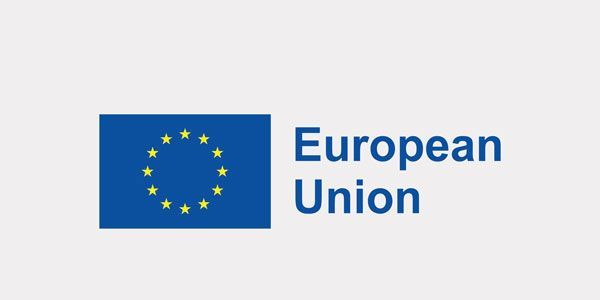DCA-NCA Ukraine
In the courtyard of the Vidnovlennya (Recovery) Center in Mykolaiv, life flows steadily. Residents in wheelchairs head to lunch, elderly people stroll in the sunshine, men repair the building’s upper floors, while others gather to listen to visiting speakers.
The center has become a lifeline for people who find themselves in extremely difficult circumstances: homeless, internally displaced persons and people with limited mobility. Today, 95 people live here, including 30 displaced persons from the Kherson region and 47 people with disabilities. Many of them are elderly people who have lost their families or whose homes have been destroyed by the war. In the spring of 2025, ten solar panels combined with gel-based water heating systems were installed with the financial support of the European Union. Today, they provide hot water and heating to all residents and significantly reduce electricity costs.

The Center’s journey began in 2004, when volunteers saved the abandoned grounds of a former pioneer camp from looting. In 2011, the Mykolaiv Center for Social Rehabilitation and Recovery was officially registered, signing agreements with local authorities to lease the land and buildings.
Originally a rehabilitation initiative for people with addictions, it gradually evolved into a unique social hub — a space offering shelter, meals, medical and psychological support, and community life for those most in need.
“With solar panels, we can be autonomous”
Running such a facility has always been challenging, especially when it came to utility bills. “Before installing solar panels, our electricity bills reached €1,630 per month. After launching the solar system in April 2025, the amount dropped to €640 — more than 50% savings,” explains chief accountant Svitlana Malitsa.


Ten solar panels were installed with the support of DCA-NCA, in partnership with the Ukrainian NGO Youth of Ukraine and funded by the European Union. Today, they supply hot water for all 95 residents and significantly reduce electricity costs. For the residents, this means not only comfort but also health, security, and hope.
“With solar panels, we can remain autonomous during possible outages. The inverters store energy, so people still have light and basic services,”Svitlana Malitsa says.
Said’s Story: From Addiction to Leadership
Among the Center’s residents is Said, who has lived here for six years. He now works daily on construction projects, cutting metal sheets and installing ceilings. Said struggled with both drug and alcohol addiction.

“I was deeply addicted, and God freed me through this center. In 2019, I told myself: enough, I’ve had my fun, and since then I’ve been here. It was still a bit hard to break myself. I was born into a Muslim family in the Tashkent. Later, my family and I moved to Ukraine, to Mykolaiv,”Said shares.
He explains that his addiction started at 18, but he prefers to focus on the present rather than the past: “The first two months were very hard. Especially when I began reading the Bible daily. By enduring everything, you will be saved in the end. You have to go through it all. You have to break yourself completely.”

“My house in Kherson oblast was destroyed because of the war”
For over a year, Olena has lived at the Vidnovlennya Center after losing her home in Tyahenka, Kherson region. Two years ago, she suffered a stroke. Soon after, war destroyed her house, taking everything: “Everything is gone. My whole life is gone,” she recalls. During shelling, her roof collapsed, leaving her with a head injury, but she survived.
Evacuated first to Rybakivka, she later found safety at the Vidnovlennya Center.
“Here I am grateful to have a roof, electricity, warmth, food, and hot water,” she says.
Living after a stroke is difficult: her right hand barely works, and daily tasks require help. “Now I’m left alone with nothing. It’s painful. But I am grateful to have this Center,” Olena shares.

For Said, the Vidnovlennya Center became more than shelter — it gave him a purpose. He discovered his talent for construction, particularly in ceiling work, and now shares this skill with others. “When I organize, I start by showing, and then everyone picks it up. It’s teamwork,” he says with pride.
The solar panels have made his life, and that of other residents, more secure. “This is much better than last year, sitting without electricity. Darkness scares me,” Said admits.
A Home of Warmth and Dignity
Despite the challenges of war and displacement, the Vidnovlennya Center continues to provide a home to those who have nowhere else to go. Here, they find food, hot water, electricity, and above all — respect and human dignity.
“For us, solar energy is not just about saving money,” says Svitlana Malitsa. “It means health, stability, and the chance to give people a life that feels truly human.”
For Said and dozens of others, this center is not simply a shelter — it is a place of renewal, hope, and a second chance at life.
About the project:
The project “Winterizing Frontline Communities and Increasing Resilience” is aimed at supporting communities in Mykolaiv and Kherson Oblasts to ensure they have access to essential services during the winter months.
The goal is to assist local communities in implementing projects that will improve infrastructure, enhance safety, and ensure access to critical services such as heating, water, and gas.
Additionally, the project promotes the use of sustainable energy solutions like solar panels and trailers to provide energy independence. The project is supported by the NGO Youth of Ukraine and funded by the European Union.


